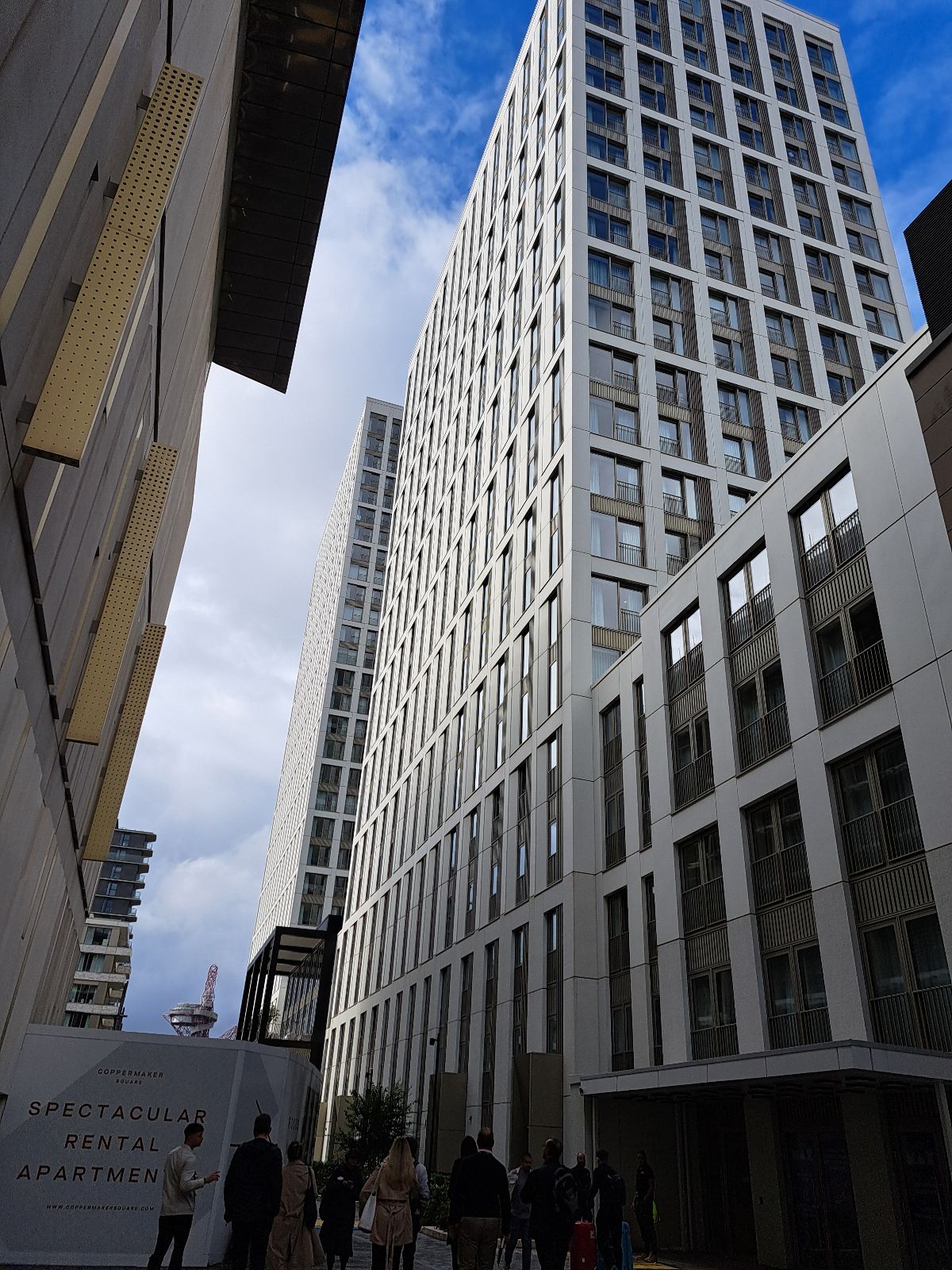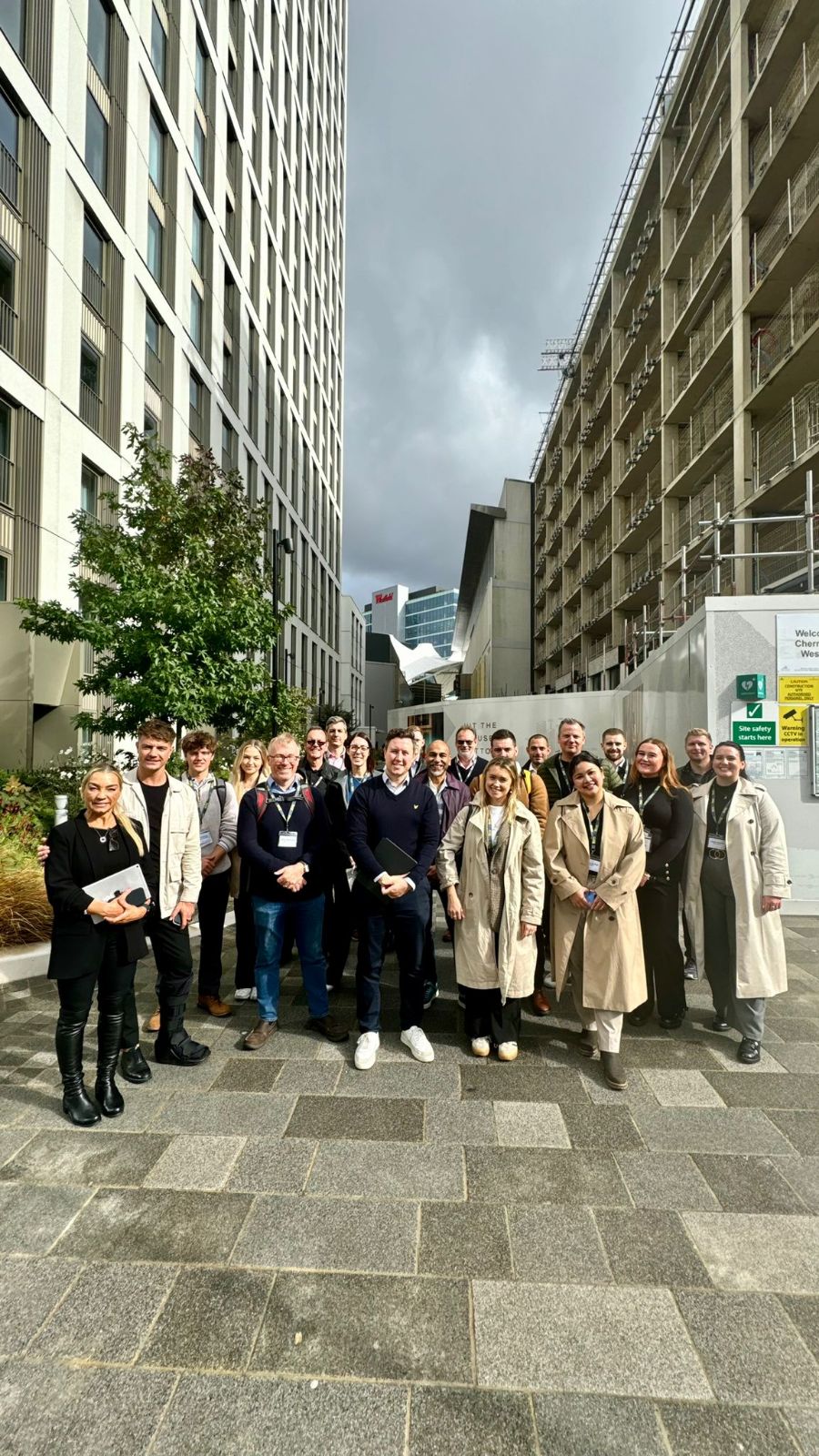Team Pink recently attended the Revo study tour of Westfield Stratford, where they were given a fascinating behind the scenes look at one of London’s most successful retail and residential developments. The tour highlighted the impressive scale, ongoing growth and innovative strategies that are shaping the future of the centre. From sustainable retail initiatives to high-end residential projects, here’s what we learned about this dynamic hub.
Westfield Stratford continues to thrive as one of the most significant commercial and lifestyle destinations in London. Located in East London, the area is undergoing rapid transformation, with 6,000 new homes being built. One of the standout developments is the Coppermaker Square, a build-to-rent scheme at the heart of Westfield Stratford. It caters to an influx of affluent students, many of whom are international, seeking high-quality housing in this vibrant area.
Key Location and Unparalleled Footfall
Stratford’s strategic location has been pivotal to its success. Situated under an hour from all of London’s major international airports, it’s a major transit hub with Stratford station ranking as the 6th busiest in London. Westfield’s proximity to the London Stadium means that on West Ham match days, footfall can be boosted by an additional 60,000 visitors. On average, the centre sees 1 million visitors per week, with 70% of that footfall made up of people under 45, specifically the sought-after 25-44 age bracket.
Retail and Leisure Spending
Westfield Stratford is home to over 300 retail stores and 80+ food and beverage (F&B) outlets, drawing an average retail spend of £100 per visitor. F&B takeaway spending averages £16, with sit-down dining services pushing customer spend to around £36. In the growing leisure sector, visitors spend an average of £24, with Saturdays being the busiest day, accounting for 20% of total leisure footfall.
Many brands, including JD Sports, which has the highest sales globally, are expanding their presence within the centre. Westfield’s strategy allows brands to flourish by offering larger spaces and aligning their growth with the increasing demand from the centre’s dynamic customer base.
Sustainability and Innovation
Westfield Stratford has firmly positioned itself as a leader in sustainable retail practices. Unibail-Rodamco-Westfield (URW) has developed its Sustainable Retail Index to assess and promote eco-conscious brands. This commitment is further highlighted by their annual Westfield Grand Prix competition, which rewards sustainable start-up businesses with rent-free retail space for a year.
Westfield’s sustainability efforts go hand-in-hand with regular refurbishments, brands undergo design refreshes every 3-4 years to stay aligned with Westfield’s high standards, ensuring stores remain modern and customer-centric.
Curated Spaces and Experiential Retail
Westfield Stratford has embraced the concept of experiential retail, where creating memorable shopping experiences takes priority over merely displaying products. One example is EE’s concept store, which focuses on interactive gaming experiences rather than showcasing its products. Popeyes, the first in the UK, has also been a huge success, offering an engaging customer experience by eliminating seating to manage queues and replacing the previous tenant, KFC.
The food court, designed to cater to different spending levels, is split into two sections: the downstairs area features self-service options with around 700 seats, while the upper floor offers 1,000–1,400 seats with crockery service to elevate the dining experience. The mix of fast food and high-end dining ensures that all types of customers are catered for, with notable selectivity in tenants—Westfield only welcomes the best of the best.
Challenges and Urban Growth
Despite Westfield Stratford’s success, there are some challenges, including the layout, which limits footfall towards the far end of the centre due to the single main point of entry. The glass “bridge” between sections of the mall, initially planned as an open-air feature, now separates the original centre from the new wellness section, creating distinct zones that cater to different shopper needs.
Additionally, Coppermaker Square apartments, a high-end development linked to Westfield, offer luxury living spaces starting at £2,500 per month, with features like gyms, swimming pools, communal gardens, and rentable appliances. Around 43% of the tenants are international students, further demonstrating the area’s appeal to a young, affluent demographic.
Conclusion: What Can We Learn from Westfield Stratford?
The Revo study tour of Westfield Stratford offered valuable insights into how this dynamic centre continues to lead the way in urban development, experiential retail, and sustainable practices. Key takeaways include the importance of integrating residential spaces like Coppermaker, creating unique customer experiences through curated tenant selection and embracing sustainability to drive both brand growth and leasing strategies. By blending innovation with customer focus, Westfield sets an example of how urban retail spaces can evolve to meet future demands.


